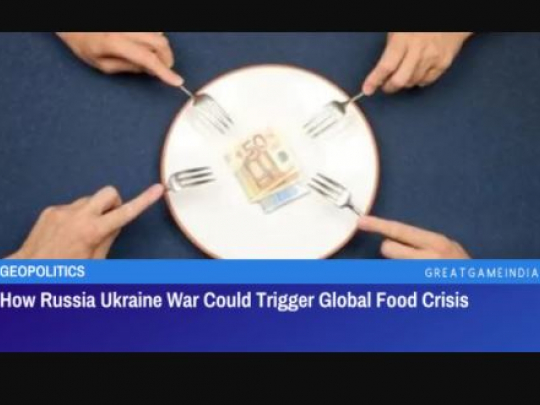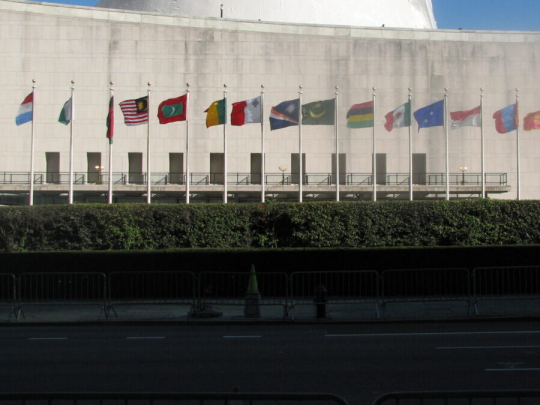How Russia Ukraine War Could Trigger Global Food Crisis

Russia and Ukraine are leading exporters of food grains and according to the FAO this war which inhibit export could possibly trigger a global food crisis.
The UN Food and Agriculture Organization (FAO) reported on March 11 ( read the pdf below) that the crisis in Ukraine might cause worldwide food and feed prices to rise by up to 22%, potentially leading to a surge in malnutrition in developing nations.
Since Russia’s invasion of Ukraine in late February, total world food output has decreased, resulting in a sharp drop in food exports from exporting countries.
Since the CCP (Chinese Communist Party) viral pandemic in 2020, food costs have been rising.
Several food exporting countries have announced new limitations on food exports or are exploring prohibitions to preserve domestic supplies.
The FAO has asked major food-producing nations to refrain from imposing export restrictions on their own products.
Qu Dongyu, FAO Director-General, stated, “Before enacting any measures to secure food supply, governments must consider their potential effects on international markets.”
“Reductions in import tariffs or the use of export restrictions could help to resolve individual country food security challenges in the short term, but they would drive up prices on global markets,” he said.
The conflict has serious ramifications for the world’s wheat supply.
Ukrainian ports have been unable to ship grain since the conflict in Eastern Europe began, and food exporters are avoiding imports from Russia as a result of financial penalties, raising global prices.
Russia and Ukraine produce 19 percent of the world’s barley, 14 percent of the world’s wheat, and 4% of the world’s maize.
Aside from grain, Russia is a major fertilizer exporter.
The FAO’s food price index reached a new high in February, and it is expected to rise even higher in the months ahead, as it is unclear if Ukraine will be able to harvest crops this year if the conflict continues.
According to Dongyu, “many of them are least developed countries or low-income, food-deficit countries” in Africa, Asia, and the Middle East are most vulnerable to extended food shortages.
According to the FAO, fifty countries rely on Russia and Ukraine for 30 percent of their wheat supply when taken together.
According to the UN, other nations can only cover a portion of the predicted deficit in Russian and Ukrainian exports, and many of the world’s poorest countries rely on the two countries for a significant portion of their wheat supply.
Russia and Ukraine produce over 70% of Egypt’s and Turkey’s wheat, while Russia alone supplies 90% of Lebanon’s wheat and cooking oil imports.
Poorer countries, such as those in Africa, rely on imported bread to feed their expanding populations.
In 2020, Africa imported $4 billion worth of agricultural products from Russia, which supplied the majority of the continent’s wheat consumption.
“The conflict’s intensity and duration remain uncertain,” said Dongyu. “The likely disruptions to agricultural activities of these two major exporters of staple commodities could seriously escalate food insecurity globally, when international food and input prices are already high and volatile.”
“The conflict could also constrain agricultural production and purchasing power in Ukraine, leading to increased food insecurity locally,” he added.
In the meantime, much of the Western world, including the United States, is experiencing high inflation.
The US Labor Department released data on March 10 showing a 7.9% increase in prices over the previous 12 months, including 0.8 percent in February alone.
High gas costs and retail prices have already impacted American consumers, which have been worsened in recent weeks by the Biden Administration’s restriction on Russian oil imports.
- Source : GreatGameIndia


















